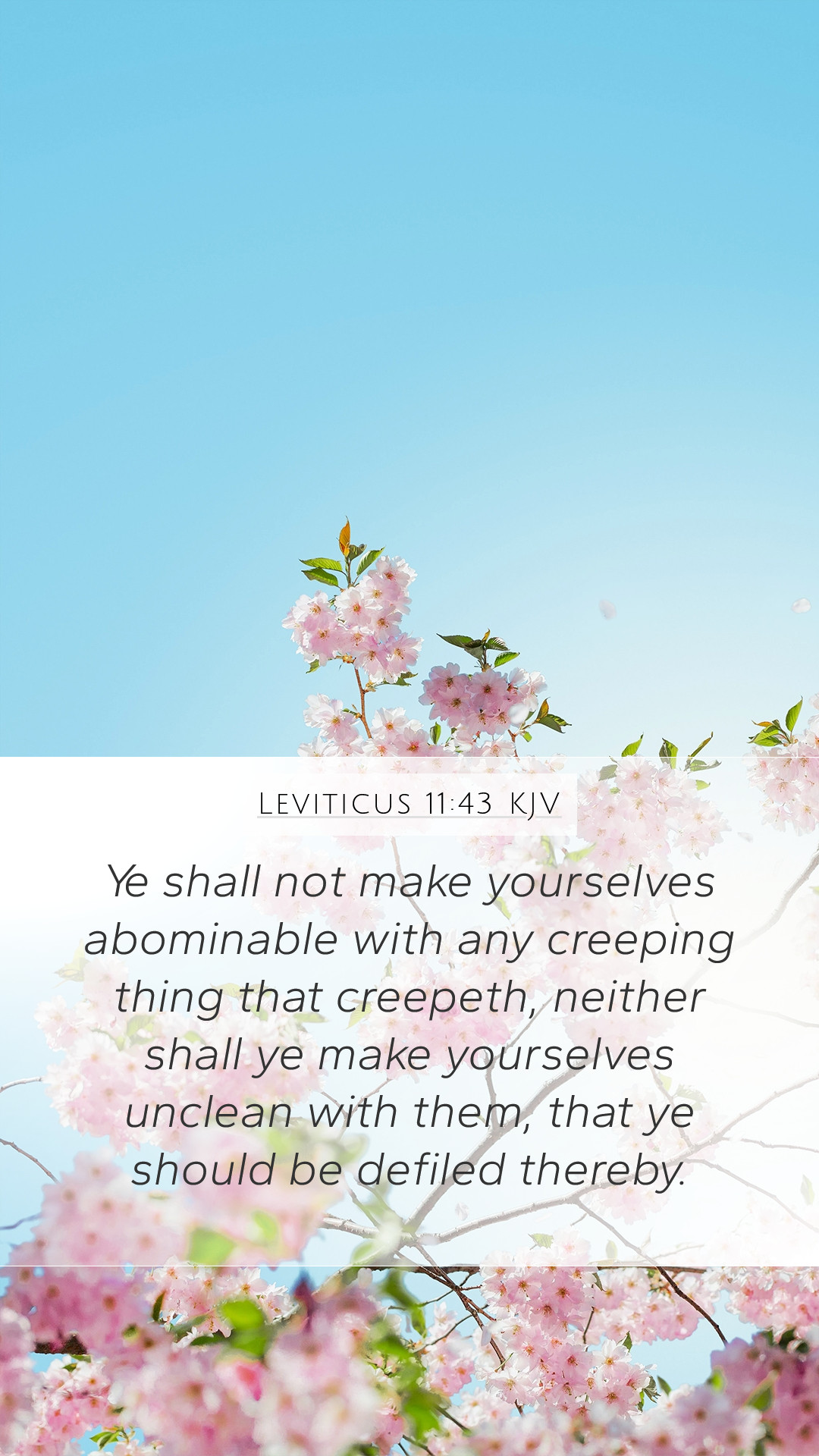Understanding Leviticus 11:43
Leviticus 11:43 states: "You shall not make yourselves abominable with any creeping thing that creeps on the earth. You shall not make yourselves unclean with them, lest you be defiled by them." This verse concerns the dietary laws given to the Israelites, outlining their obligations to maintain ceremonial purity.
Bible Verse Interpretation
This verse is a directive from God through Moses that emphasizes separation from unclean animals. The appeal is not merely about dietary regulations but also about maintaining holiness as God's chosen people. The underlying message reinforces the importance of **spiritual cleanliness** associated with physical actions.
Commentary Insights
-
Matthew Henry:
Henry focuses on the symbolic meaning behind the dietary laws, noting that they reflect God's desire for His people to differentiate themselves from surrounding nations. The admonition against becoming defiled emphasizes the spiritual implications of the Israelites' lifestyle choices.
-
Albert Barnes:
Barnes provides a thorough analysis of the categorization of clean and unclean animals as both a physical and a spiritual requirement. He posits that the commandments aimed to instill a sense of holiness among the people, cultivating a lifestyle that continually recognizes the sanctity of their relationship with God.
-
Adam Clarke:
Clarke points out the cultural context of the Israelites compared to neighboring nations that consumed various unclean animals. The demands of the law were designed to set apart the Israelites' practices, fostering a distinctive identity centered around divine instruction.
Significance of the Verse
The directive in Leviticus 11:43 holds significant importance in understanding the **holiness** that God requires. It illustrates how everyday decisions, including food choices, can reflect one's commitment to living a life in accordance with God's will. Such dietary rules not only helped in ensuring physical health but also served as a reminder of the larger covenant relationship with God.
Application in Daily Life
As modern readers engage with this verse, it may seem distant. However, the principle of maintaining spiritual purity applies universally. Believers today are encouraged to evaluate their choices—be it social interactions, media consumption, or moral choices—to ensure alignment with their faith.
Cross References
- Leviticus 20:25: Discusses the distinction between clean and unclean and reminds the Israelites of their call to holiness.
- 1 Peter 1:16: "For it is written, 'Be holy, for I am holy.'" This New Testament echo reiterates the call for believers to live in holiness.
- Romans 12:1: Encourages presenting one's body as a living sacrifice, holy and pleasing to God, which connects to the necessity of spiritual cleanliness.
Conclusion
Leviticus 11:43 extends beyond a simple dietary rule; it is a profound instruction on the nature of holiness and the identity of God's people. Through various **Bible verse interpretations**, one can glean not only historical insights but also practical applications for contemporary life, revealing the timeless relevance of Scripture.


